June 2025
THE PHAHAMA GRAIN PHAKAMA (PGP) FARMER DEVELOPMENT TEAM BELIEVES THAT THE DEVELOPMENT OF FARMERS IS NOT ONLY ABOUT LAND, MACHINES, MARKETS, MONEY, SKILLS DEVELOPMENT AND TRAINING, BUT ALSO ABOUT THE INDIVIDUAL.
At study group meetings, farmers have access to information and expert advice. These sessions bring the farmer development footprint to key grain-growing regions. This is how the team gets to know the farmers and how the farmers learn to trust the team. It is also where farmers can get their latest copy of Pula.
For advanced developing farmers who had grown beyond study groups and are almost ready to farm independently, but could benefit from a year’s intensive one-to-one mentoring, support in the form of farm visits was arranged. During these visits, the regional development managers and/or mentors engage with the farmers and get to know them more personally. They also offer seasonal support and advice.
Between 10 March and 4 April this year, a total of 60 farm visits happened, during which crop inspections and yield estimations were done.
Some of these farmers were concerned about pests, and their mentors could help them to attend to this problem in time.
THE TEAM’S INSPIRATION
What keeps the team motivated to keep going, is when they witness the excitement of farmers being inspired by what they have learned, and when they see the results in the field after farmers follow their advice. Here are some of the moments the regional development managers and mentors observed on their recent farm visits.
Louwsburg
Free State
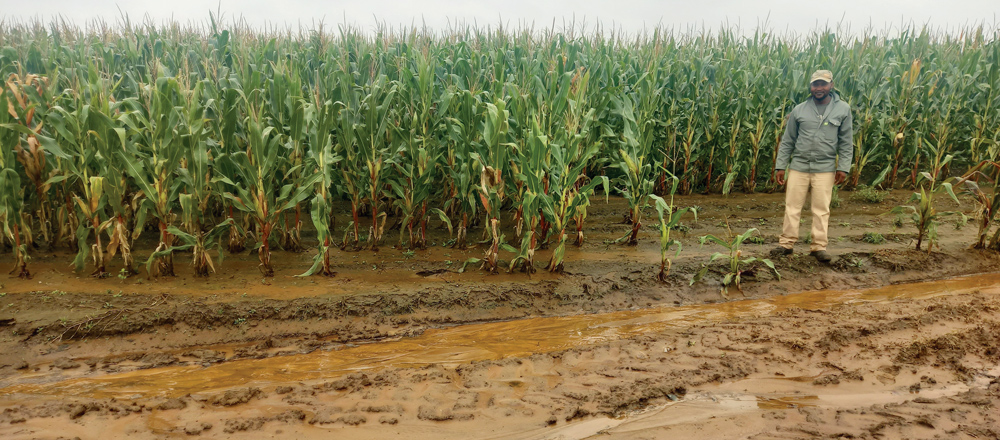
Alfred’s farm received 80 mm of rain the day before his mentor’s visit, making it almost impossible to get into the fields.
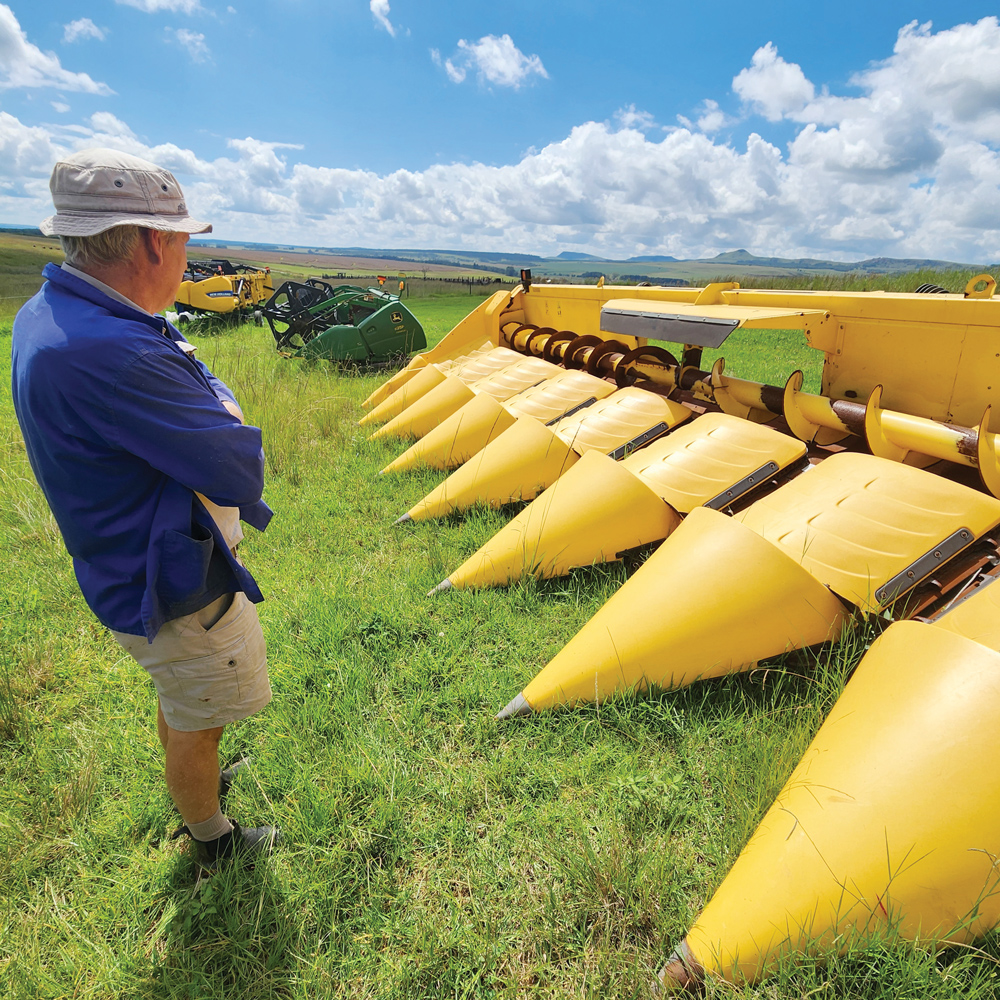
Timon and Mathews also organised with a harvesting contractor to harvest and transport the soybeans and maize.
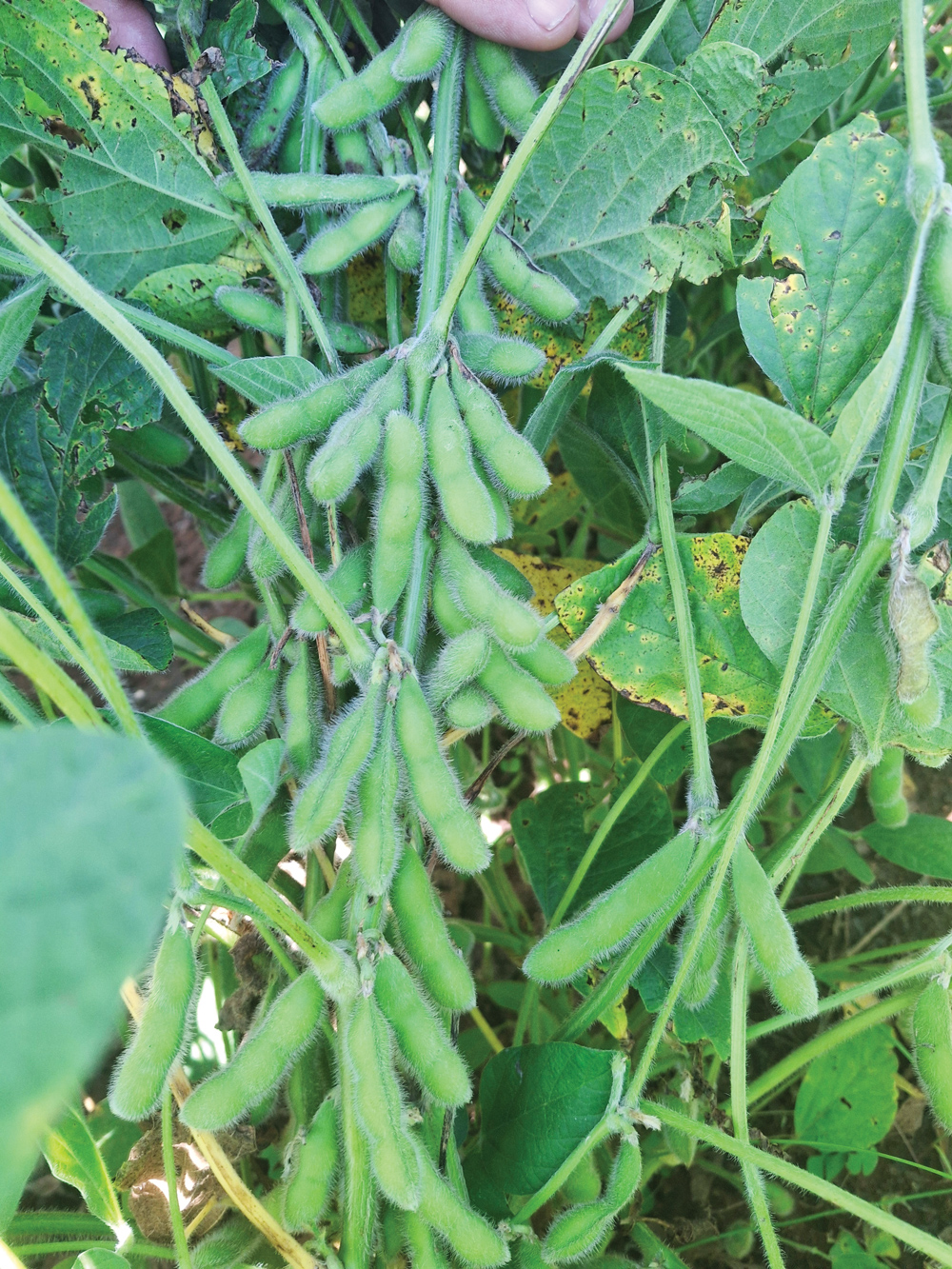
The promising soybean crop of farmer Lekhotla is about 1,65 t/ha.
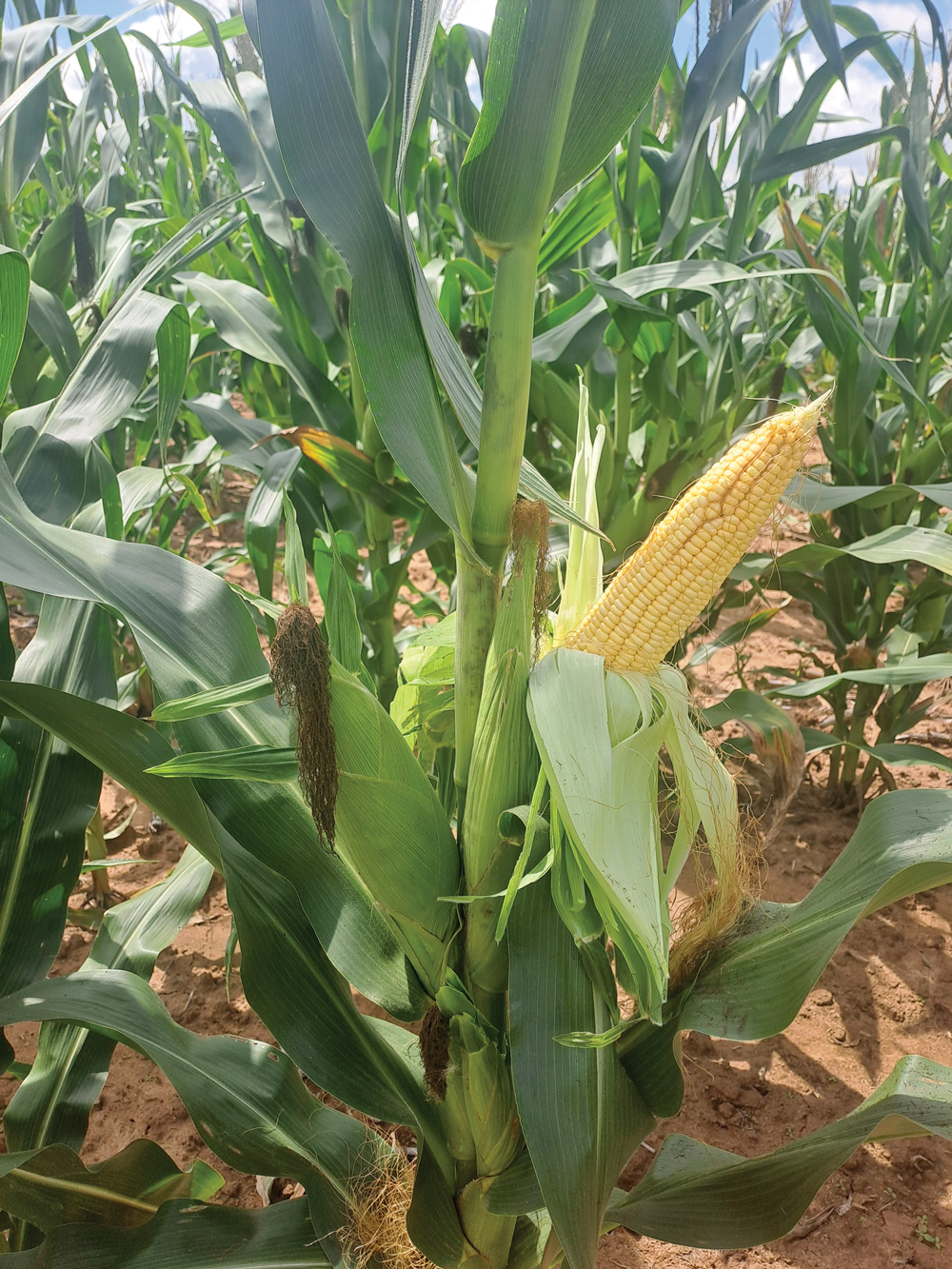
Farmer Oujan Masiu’s maize was found to be in the pip set stage and filling up.
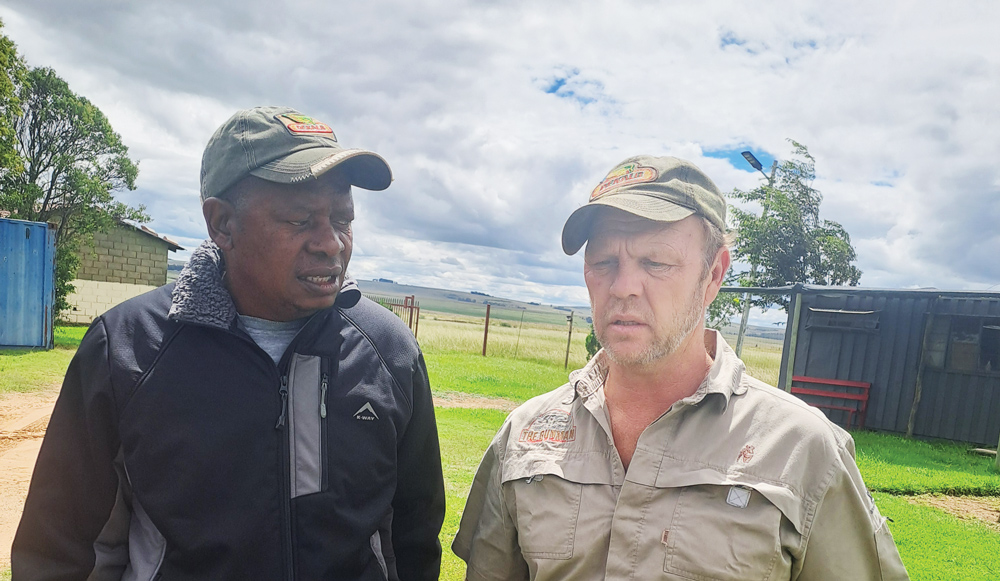
Ranko and Jacques.
A total of 16 study group meetings took place between 10 March and 4 April.
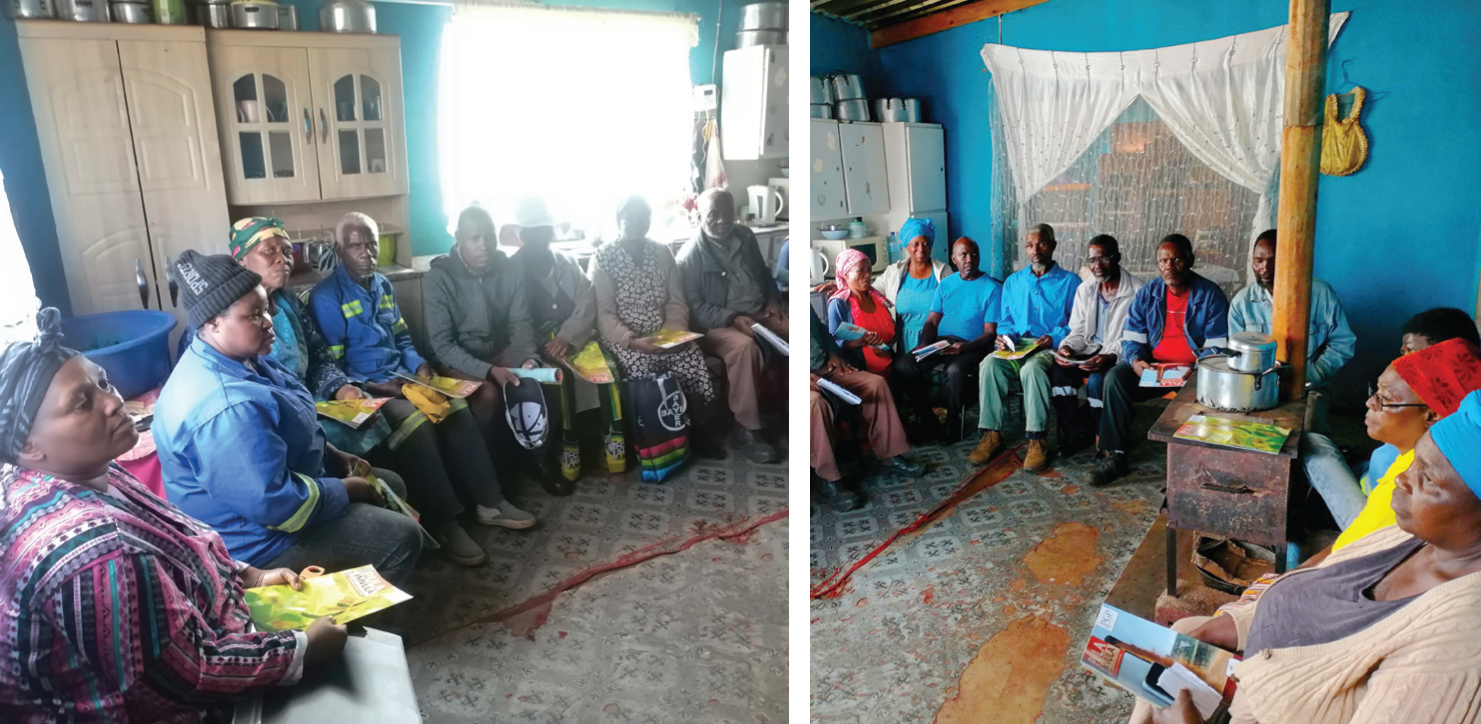
The Breyten Study Group meeting was well attended, and the importance of timeous pre-emergence spraying and regular scouting to monitor the infestation of problem pests were discussed.
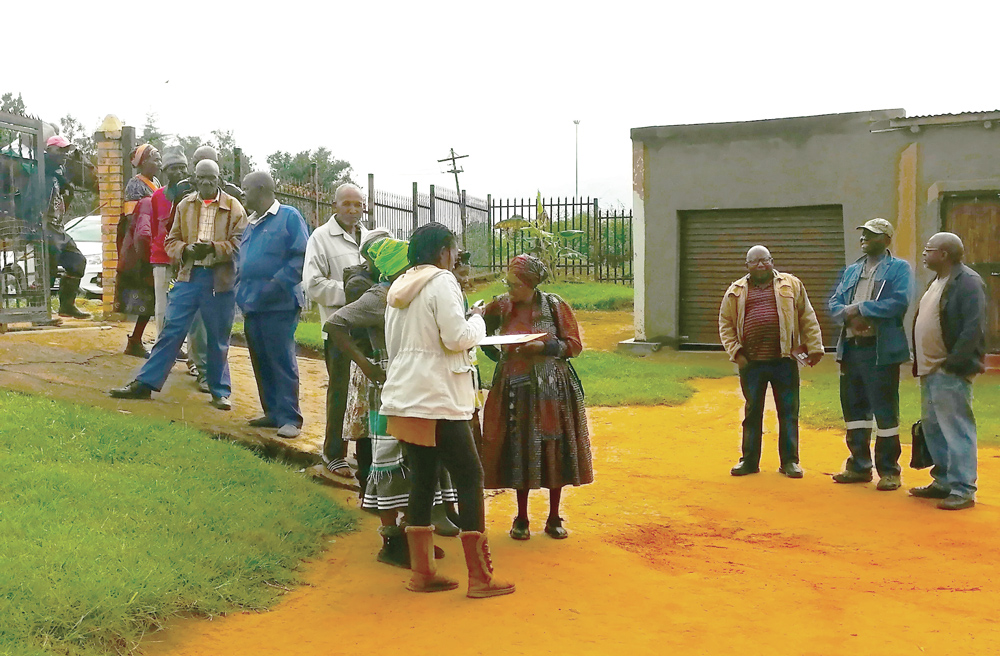
Climatic conditions were difficult for the farmers of the Dukuza Study Group, with persistent hot conditions during the planting season and late rains that damaged the cobs. Farmers who could follow the spraying programme, gave a good report of better weed control.
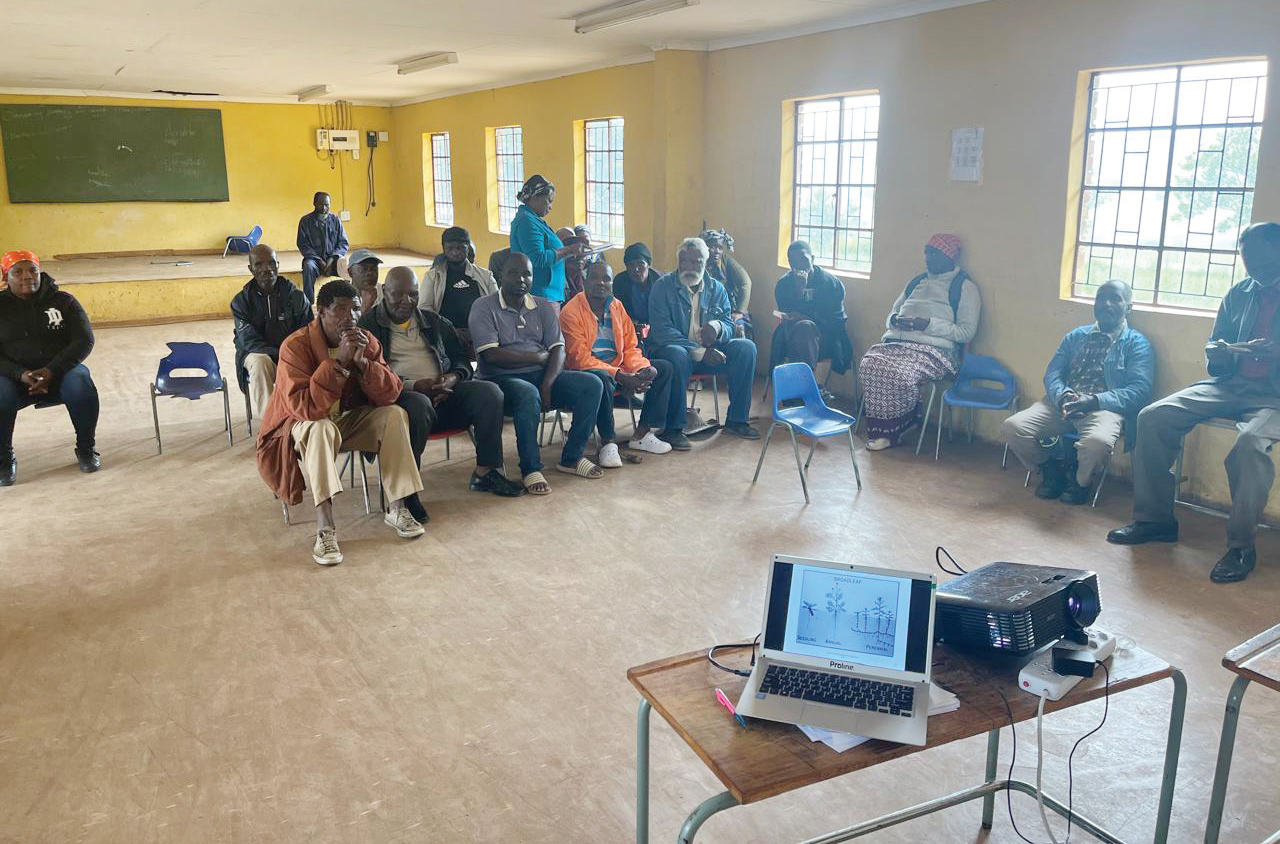
Farmers who attended the Lijahasisu Study Group discussed the logistics of the BA Project.
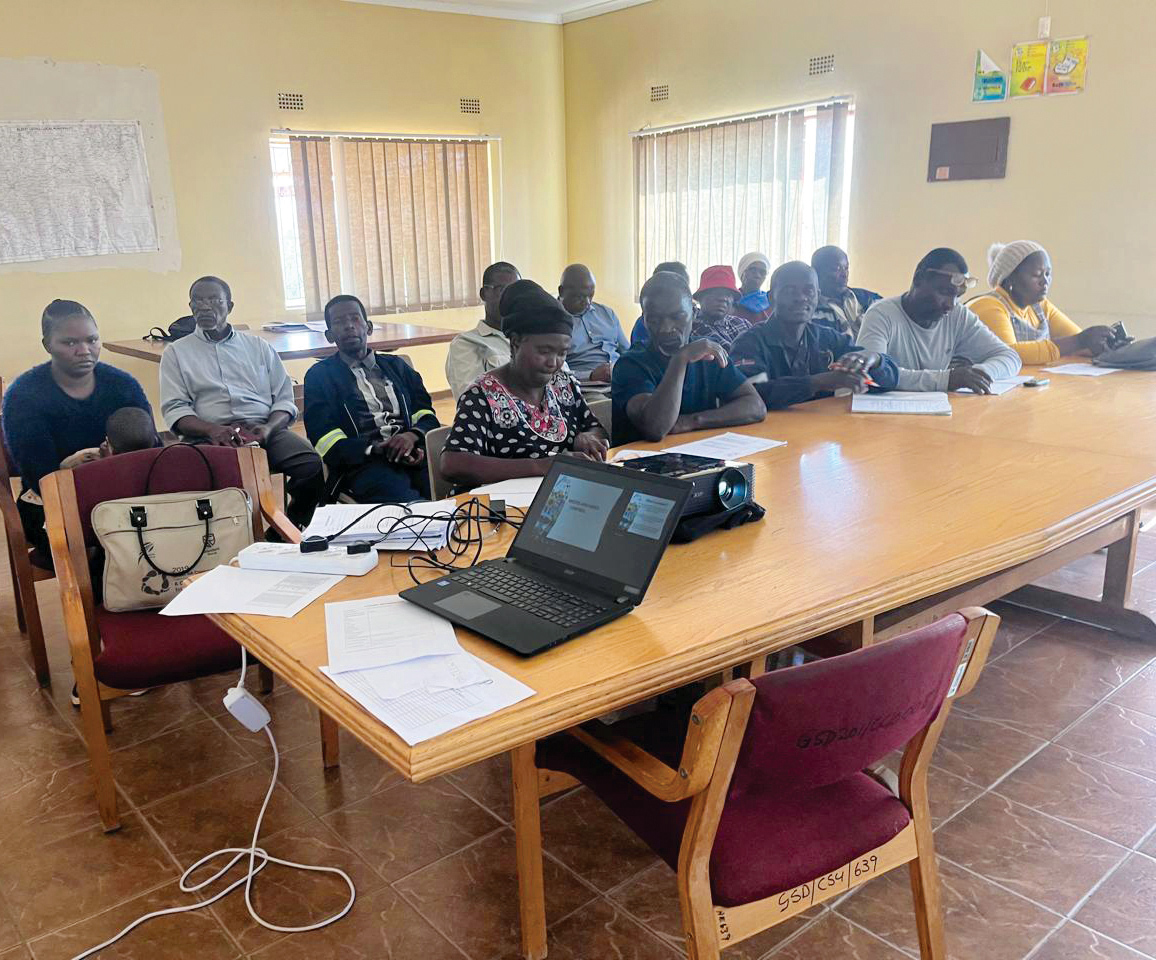
The Badplaas/Inkalane Study Group learned more about the control of weeds using both pre- and post-emergence herbicides.
Just a reminder that Phahama Grain Phakama bank accounts are open for the BA deposits for the 2025/2026 planting season. Study group visits are taking place between April and July to finalise the farmer numbers.
The closing date for the BA Programme is 31 July 2025. To participate in the BA programme, you must be part of a study group and have paid your Grain SA membership fees.
Publication: June 2025
Section: Pula/Imvula